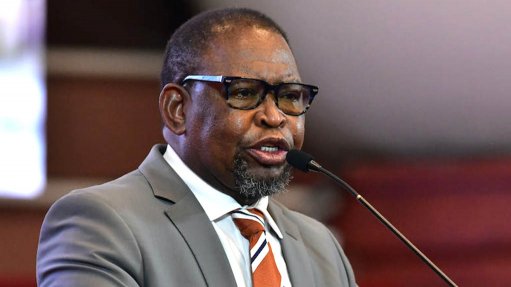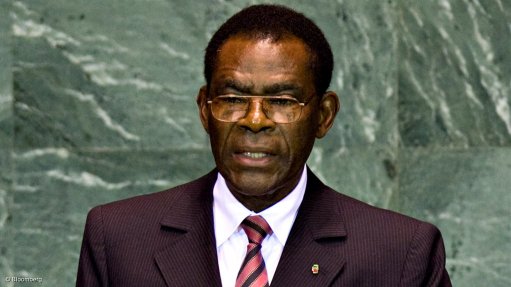Standard Bank continues to increase exposure to renewables, move away from coal
Standard Bank has released its interim Task Force on Climate-related Financial Disclosures (TCFD) report, highlighting that environmental, social and governance (ESG) aspects remain at the centre of the bank’s agenda of driving sustainable and inclusive growth in Africa.
Sustainability head Wendy Dobson says the bank continues to consider climate-related risk as a top risk and material issue and it is working to better understand.
“Our intention is to align our services and lending practices with the objectives contained within the Paris Agreement.
“This means progressively managing our portfolio in a manner that is consistent with a low-carbon and climate-resilient economy needed to limit global warming to below 2 °C and supporting a just transition in our countries of operation,” she explains.
She notes that this is tricky to do, considering that many economies in Africa remain heavily dependent on fossil fuels, on the back of energy poverty. Less than 43% of the African population has access to grid electricity.
Dobson states that the transition to cleaner energy solutions is under way, but says Standard Bank recognises that this will take time. The bank is committed to balancing the challenges posed by climate change with the need to support access to reliable energy that supports economic growth and poverty alleviation.
Standard Bank operates in 20 African countries and believes that energy remains a huge inhibitor to human development, education, health and building enterprises to create jobs.
Despite having abundant hydro, solar and wind resources, renewable energy generation in Africa remains limited. Across Africa, hydropower accounts for 16% of generation, solar and wind for 1.3% and nuclear for 1.57%, while less than 0% is generated from biofuels and geothermal power sources.
This leaves a gap of over 80% of energy demand being provided by fossil fuels.
Nonetheless, Standard Bank’s energy finance portfolio is increasingly focused on renewable energy projects. Since 2012, an estimated 984 900 equivalent homes have received renewable power from Standard Bank-financed projects in South Africa.
“We recognise that South Africa is a top 15 global emitter, owing to its reliance on coal-fired power stations. Our coal-fired power finance policy and thermal coal mining policy set clear parameters for lending in the coal sector.
“We are engaging with our clients in high-carbon-emitting industries, including mining and energy, to encourage the adoption of energy efficiency measures.
Standard Bank recognises that its exposure to climate change is through what is financed and how its clients operate and produce.
In terms of sectors that have a higher transition risk and higher climate change risk in general, Standard Bank has R3.1-billion of on balance sheet loans and advances for coal-fired power generation, R3.5-billion for coal mining, R8.6-billion for oil and gas exploration and production, R3-billion for midstream oil and gas services and R75-billion for agriculture.
The bank also has R11-billion of loans on the book for renewables.
Standard Bank established a TCFD working group in 2019 to implement the TCFD-aligned reporting by the group related to climate risk governance and climate risk measurement and reporting.
Dobson says climate change remains a material issue and high risk aspect that the bank needs to manage. She adds that, because climate risk measurement and disclosure is a work in progress, the bank continues to evolve its methodologies and approaches.
In terms of governance, the Standards Bank board has oversight of climate-related risk management, including risk management frameworks and practices.
The board has committed itself to understanding the issue and leverages advice from a group risk and capital management committee, as well as a group social and ethics committee.
SUSTAINABLE FINANCE STRATEGY
Meanwhile, sustainable finance head Nigel Beck, in explaining the bank’s sustainable finance strategy and what it has achieved so far, says the bank measures its ability to create shared value in terms of five strategic value drivers, including client focus, employee engagement, risk and conduct, financial outcomes and social, economic and environmental impacts.
Standard Bank recognises that its success is inextricably linked to the prosperity and wellbeing of its clients and societies in which it operates.
“A holistic understanding of our broader impacts, together with the associated deepening of client relationships, is fundamental to becoming more than a bank,” Beck says.
He believes Standard Bank is at the forefront of ESG integration into product development and client engagements. The company’s sustainable finance space extends across debt capital markets, equity capital markets, advisory and lending.
Standard Bank has been involved in the first green infrastructure bond issued by a corporate in Nigeria, as well as the first green bonds in East Africa and South Africa and the first ESG-linked facility in the real estate investment trust sector.
The bank's accolades include winning an award for being the best global investment bank for sustainable finance in March.
Standard Bank says it has firmly established its position as the leading green bond arranger and issuer in South Africa, being responsible for arranging 41% of African green bond issuances in 2019.
For example, the bank sold Africa’s largest green bond, raising $200-million to finance climate-related projects such as renewable energy, water efficiency and green buildings. This bond was a landmark placement for South Africa and would contribute to financing the country's green economy.
Since 2012, Standard Bank has financed the construction of new power projects to the value of $2.7-billion in Africa – 86% of these projects were for green energy and 14% of them were “brown” energy, mostly for natural gas and heavy fuel oil.
Comments
Press Office
Announcements
What's On
Subscribe to improve your user experience...
Option 1 (equivalent of R125 a month):
Receive a weekly copy of Creamer Media's Engineering News & Mining Weekly magazine
(print copy for those in South Africa and e-magazine for those outside of South Africa)
Receive daily email newsletters
Access to full search results
Access archive of magazine back copies
Access to Projects in Progress
Access to ONE Research Report of your choice in PDF format
Option 2 (equivalent of R375 a month):
All benefits from Option 1
PLUS
Access to Creamer Media's Research Channel Africa for ALL Research Reports, in PDF format, on various industrial and mining sectors
including Electricity; Water; Energy Transition; Hydrogen; Roads, Rail and Ports; Coal; Gold; Platinum; Battery Metals; etc.
Already a subscriber?
Forgotten your password?
Receive weekly copy of Creamer Media's Engineering News & Mining Weekly magazine (print copy for those in South Africa and e-magazine for those outside of South Africa)
➕
Recieve daily email newsletters
➕
Access to full search results
➕
Access archive of magazine back copies
➕
Access to Projects in Progress
➕
Access to ONE Research Report of your choice in PDF format
RESEARCH CHANNEL AFRICA
R4500 (equivalent of R375 a month)
SUBSCRIBEAll benefits from Option 1
➕
Access to Creamer Media's Research Channel Africa for ALL Research Reports on various industrial and mining sectors, in PDF format, including on:
Electricity
➕
Water
➕
Energy Transition
➕
Hydrogen
➕
Roads, Rail and Ports
➕
Coal
➕
Gold
➕
Platinum
➕
Battery Metals
➕
etc.
Receive all benefits from Option 1 or Option 2 delivered to numerous people at your company
➕
Multiple User names and Passwords for simultaneous log-ins
➕
Intranet integration access to all in your organisation


















